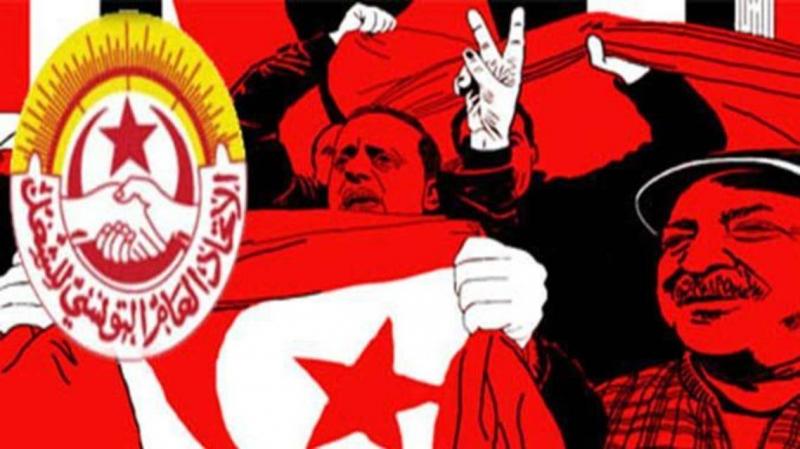The Secretary-General of the Tunisian General Labor Union, Noureddine Taboubi, stated on Tuesday that the union wants a smaller government led by an experienced Prime Minister who can send positive signals to Tunisians and international donors. Earlier on Tuesday, the labor union urged President Kais Saied to expedite the formation of the government after around nine days of concentrating executive power following the dismissal of the Prime Minister and the suspension of Parliament, according to Reuters.
The Tunisian General Labor Union also condemned on Tuesday leaders from the Ennahda Movement for what it described as relying on foreign entities and inciting against the country, reiterating its rejection of some countries' interference in Tunisia's internal affairs. The national administrative body of the union stated in a communiqué, "We reject the interference of certain countries in Tunisia’s internal affairs as a form of guardianship, and we condemn the recourse of leaders from the Ennahda Movement to fortifying foreign entities and encouraging them against our country, reaching the point of calling for a halt to vaccine supplies."
The statement also condemned what it described as threats from Ennahda's leader, Rached Ghannouchi, of domestic violence and against neighboring countries "which pose a danger to Tunisia's interests." The statement called for speeding up "the appointment of a cohesive, smaller rescue government tasked with urgent and exceptional missions to meet social requirements," and renewed calls for hastening the conclusion of the exceptional period to enable the country to emerge from the crisis.
Forecasts indicated that President Saied was expected to announce on Tuesday the name of the Prime Minister who would lead the country during the upcoming exceptional phase and attempt to address the economic, financial, and social crisis it faces. So far, President Saied has appointed three individuals to manage key ministries, selecting his security advisor Khaled Gharsllawi to supervise the Ministry of Interior, designating a woman, Sihem Boughediri, to manage the Ministry of Economy, Finance, and Investment Support, and naming expert in information technology and digital security Nizar Ben Najy to manage the Ministry of Communication Technologies.
However, a week after President Saied's decisions to dismiss Prime Minister Hichem Mechichi and suspend Parliament, Tunisians are still awaiting Saied's actions and watching for the filling of the most significant position in the state, as well as the announcement of the personality who will lead the government team that has begun selecting its members. This is expected to be announced on Tuesday evening, according to confirmations from the deputy of the "People's Movement," Hekel Makki.
As of today, President Saied, who is holding successive meetings with active national and civil forces in the country, has not disclosed his upcoming plans and visions for the next phase, nor the identity of the future Prime Minister. However, there is strong speculation regarding the names of former Minister of Finance Nizar Yahya and Central Bank Governor Marwan Abassi, both of whom have economic and financial backgrounds.
Marwan Abassi met with President Kais Saied two days ago at Carthage Palace and told him, "We will work together to achieve the goals of the Tunisian people concerning jobs, freedom, and national dignity," a statement that Tunisians perceived as an indication that Abassi might be the next Prime Minister.
Abassi, who has been the Governor of the Central Bank since 2018, is an economist with an extensive professional history, having previously worked as a consultant at the Arab Institute of Business Leaders, then as a senior economist at the Tunisian Institute of Strategic Studies, and as an economic advisor to the Minister of Trade, Tourism, and Handicrafts. He has also taught economics at universities in Brussels, New York, Japan, and Tunisia, and worked with the World Bank as a senior economist and country program coordinator in Libya, before being appointed the Bank's representative in Libya in 2010 and then its director in 2012.
The second name nominated for the Prime Minister position is also a figure with economic and financial orientations and expertise, Nizar Yahya, who served as Minister of Finance in Elyes Fakhfakh’s government, known for his strict stances against corruption and professionalism during his tenure. Nizar Yahya is close to President Saied, having previously met with him in March to provide a detailed overview of the economic situation, public finance, budget, and their direct threats to national security, as well as a series of proposals and visions for solutions and reforms to help Tunisia address its current economic crisis.




